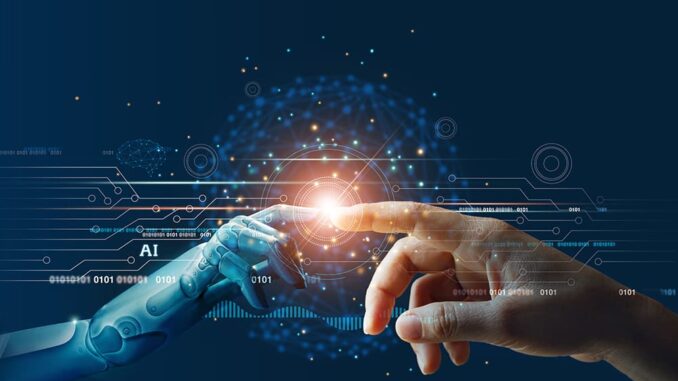
AI is being utilized in a variety of ways across numerous industries in the real world. Here are some key applications:
1. **Healthcare**: – **Diagnostics**: AI algorithms analyze medical images (like X-rays, MRIs) for early detection of diseases such as cancer.








– **Drug Discovery**: AI models predict how different compounds interact, speeding up the process of drug development.
– **Personalized Medicine**: AI assesses patient data to recommend tailored treatment plans.
2. **Finance**:
– **Fraud Detection**: AI systems monitor transactions in real-time to identify suspicious activities.
– **Algorithmic Trading**: AI-driven algorithms analyze market data and execute trades at high speeds.
– **Credit Scoring**: AI enhances the assessment of creditworthiness by incorporating a wider range of data.
3. **Retail**:
– **Inventory Management**: AI forecasts demand for products to optimize inventory levels.
– **Customer Recommendations**: Algorithms analyze purchasing patterns to provide personalized product suggestions.
– **Chatbots**: Retailers use AI chatbots for customer service, handling inquiries and assisting with orders.
4. **Transportation**:
– **Autonomous Vehicles**: AI powers self-driving cars, using sensors and algorithms to navigate and make real-time decisions.
– **Route Optimization**: AI helps logistics companies determine the most efficient delivery routes.
– **Traffic Management**: AI analyzes traffic patterns to optimize signals and improve flow in urban areas.
5. **Manufacturing**:
– **Predictive Maintenance**: AI predicts equipment failures based on sensor data to minimize downtime.
– **Quality Control**: Computer vision systems analyze products on assembly lines to ensure quality standards.
– **Supply Chain Optimization**: AI forecasts demand and adjusts supply chain logistics accordingly.
6. **Entertainment**:
– **Content Recommendation**: Streaming services like Netflix use AI to suggest shows and movies based on user preferences.
– **Game Development**: AI is used to create responsive and intelligent non-player characters (NPCs) in video games.
– **Content Creation**: AI tools assist in writing, music composition, and video editing.
7. **Education**:
– **Personalized Learning**: AI adapts educational content to meet the individual needs of students.
– **Administrative Tasks**: AI streamlines administrative processes, making operations more efficient.
– **Tutoring Systems**: AI-driven educational platforms offer personalized tutoring experiences.
8. **Customer Service**:
– **Chatbots and Virtual Assistants**: Organizations deploy AI chatbots to handle customer inquiries and support efficiently.
– **Emotion Recognition**: AI analyzes customer emotions through voice and text to improve service quality.
9. **Smart Cities**:
– **Infrastructure Management**: AI optimizes energy consumption and monitors city services like waste management and water supply.
– **Public Safety**: AI analyzes data from various sources to enhance public safety measures and resource allocation.
10. **Agriculture**:
– **Precision Farming**: AI models analyze soil conditions and weather patterns to optimize planting and harvesting.
– **Crop Monitoring**: Drones and AI monitor crop health to improve yield and reduce waste.
AI applications are vast and continue to grow, with ongoing advancements in technology allowing for even more innovative uses.

Leave a Reply